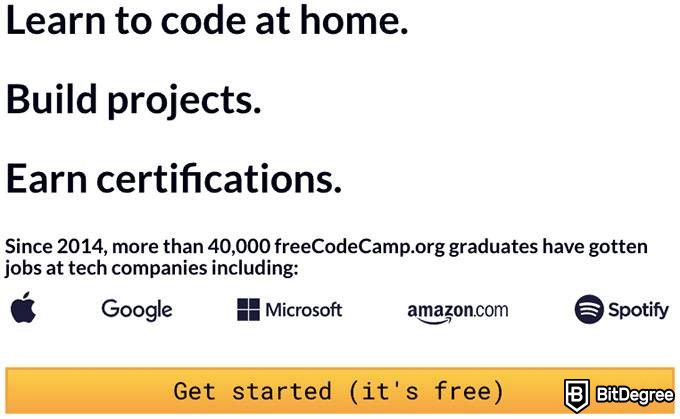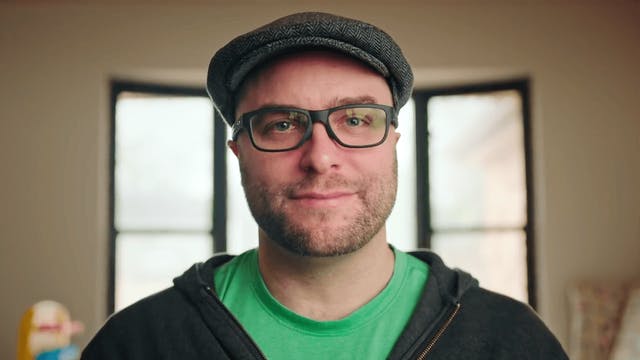freeCodeCamp is a non-profit organization that aims to help people learn all the necessary coding skills they need to start programming. It was first launched in 2014, in California. With the likes of the big hitters like coursera, udacity, etc..freecodecamp focuses on the basics for users to start off with programming hands on right away. No extra software needed. Plus its free.
The creator of freeCodeCamp, Mr. Quincy Larson, claims that his reason for creating and establishing the platform is to help students go from being a beginner to an advanced level in the field of coding and web development. Quincy is, himself, a programmer, but his background is in education. He has worked as a teacher, tutor, and school director in both the United States and China. During that time, he taught himself how to code, and used that knowledge to automate school workflows, so that teachers and administrators could have more time with their students. Since 2014, he has become a leading voice within the renaissance of code, and has aided thousands of people worldwide to achieve developer’s bliss.
Since the company is a non-profit, all of the things that you can learn on the platform are completely free. Furthermore, once you finish your studies on freeCodeCamp, you will have the opportunity to apply your skills in practice for other non-profit organizations, thus providing you a full (theoretical and practical) experience.
Quality of Content
it’s really difficult to unlearn something that appears to be (or is presented) as being right at the time, but turns out to be completely wrong later on in life. This is why the quality of the content that you’ll study matters more than anything else. Most students are generally really happy with the quality of the content that the platform offers. freeCodeCamp is great in the sense that it’s designed for complete beginners in the field of coding.
Is it really free? what’s the catch?
Majoring of the funding for the platform actually comes from donations and contributions. Anyone can donate to the site, thus pitching in on its constant development.The company works closely with other various non-profit organizations worldwide – this allows freeCodeCamp to promise certified students possibilities to test their skills “in the real world”. While there is no money to be made, as stated in an interview; “There are literally 1 million nonprofits just here in the US. There’s no shortage of work to be done to help these nonprofits fulfill their missions. For profit companies can use our open source tools as well, of course, but we’ll continue to focus on helping nonprofits for the foreseeable future.”

References and Readings
https://www.bitdegree.org/online-learning-platforms/freecodecamp-review
https://www.freecodecamp.org/news/short-interview-with-quincy-larson/
https://medium.com/@icartusacrimea/quincy-larson-chingu-senior-dev-guest-ama-no-2-551c8ce73232

Quincy Larson is the perfect example of an entrepreneur who uses his background as an educator and a programmer to help students learn new skills (coding, in this case). With FreeCodeCamp operating on funding from donations and contributions, the courses on the platform remains accessible to everyone. It is also really impressive that FreeCodeCamp’s graduates successfully secure jobs at giant tech companies.
What I am still figuring out is- How does FreeCodeCamp really make money? If it is solely based on donations and contributions, what does expansion for the company looks like?
HI Connie, even though there is no over head and funding is based on donations, they are doing pretty well. See link https://www.freecodecamp.org/news/freecodecamp-2020/ and also their public tax return – https://freecodecamp.s3.amazonaws.com/freeCodeCamp+2019+f990.pdf